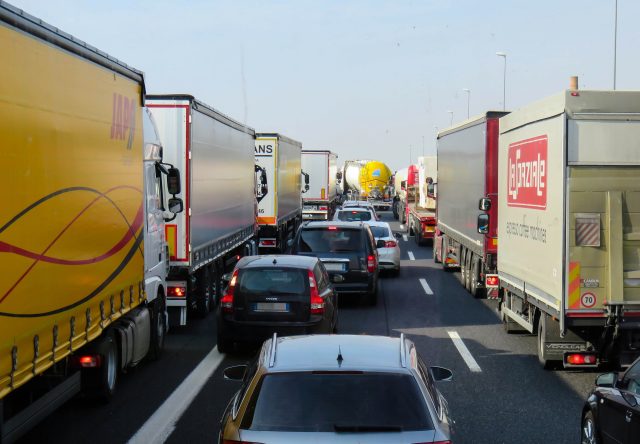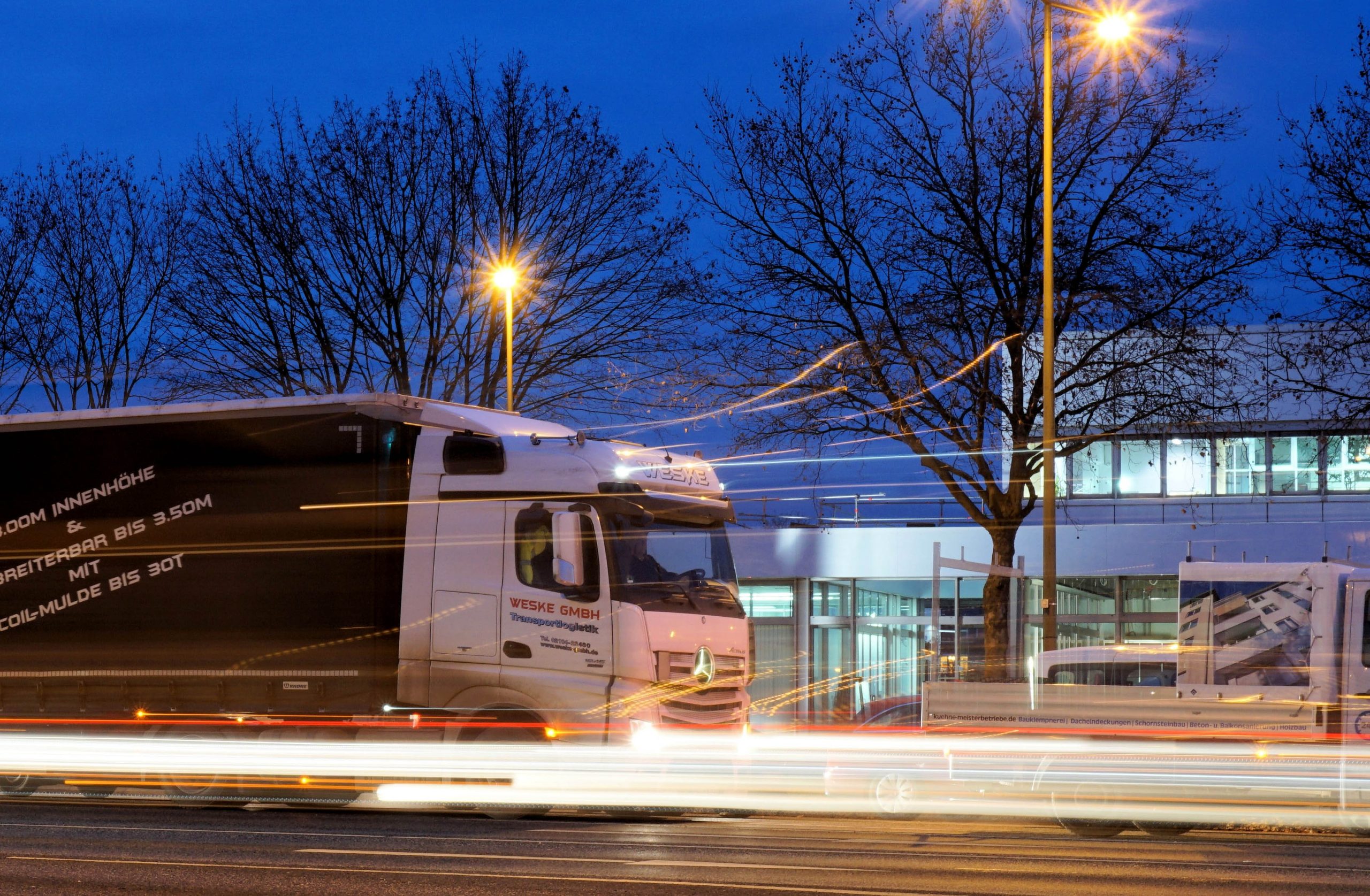
Romania, along with Bulgaria, will join the European Schengen free movement area in March with its air and sea borders. While for Romanian tourists the fact that they will no longer be checked at Romanian airports if they travel to a Schengen member state is good news, for Romanian carriers the decision taken in December is a nightmare. And that’s because Bulgaria’s neighbours have pledged to Austria to step up controls at their land borders with Romania.
So, for weeks now, border crossing times for freight trucks have increased considerably – in some cases taking a truck seven days to pass through checkpoints. Romanian hauliers have complained to the government in Bucharest and have even asked to be decoupled from Bulgaria in the Schengen accession process, but the issue has been lost in the huge pile of demands raised by hauliers in the general protests that this socio-professional category has organised since January across the country, and this specific demand has not been answered. Moreover, not only has Bulgaria committed itself to Austria to take a series of measures to ensure that the latter gives up its veto on the reception of the two south-eastern European countries between the borders of the free movement area, but Romania has also signed a bilateral agreement with the government in Vienna. According to some analysts, beyond unblocking the situation, the signing of these bilateral agreements only put Romania and Bulgaria in the position of being unable to raise any claims and take any action and in the position of waiting for Austria to change its mind. Which, in all likelihood, despite the optimism of the governments in Bucharest and Sofia, will not happen before the end of this year.
Bulgarian customs have tightened controls at all border crossing points
Since the beginning of the year, the Bulgarian Customs Agency has tightened controls at all border crossings, including those with Romania. Primarily targeted are lorries carrying goods to Austria, and the checks are in line with Romania and Bulgaria’s commitment to Austria to step up land border controls, Bulgarian news agency BTA reported in early January.
In addition to document checks, lorries are subject to physical inspections, X-ray scans of both cargo compartments and cabins. But it’s not just lorries that are checked – coaches and cars get the same treatment. And it’s not just at the border that checks are being carried out – police are more active than ever, including on motorways and expressways. In other words, while for most airline customers Schengen accession will be a blessing, for those who continue to travel by car to Bulgaria or Greece – a nightmare, and for hauliers – an even bigger nightmare as they frequently make such journeys. According to the Bulgarian customs authority’s announcement, these controls will continue until Schengen accession with land borders, and after that they will remain in force only at the EU’s external borders with Turkey and Serbia.

According to the National Union of Road Hauliers in Romania – the employers’ organisation in this economic sector – these controls are abusive and, if they have to wait for days to cross the Bulgarian border, at least they should not have to benefit from the same excessive control treatment at the Hungarian border. According to a press release issued by the UNTRR in mid-February, the problem at the Romanian-Bulgarian border has already existed since last year, and since January the attitude of the Sofia government has only made the situation worse. According to the employers’ organisation, the problem at the RO-BG border is in addition to the one at the Hungarian border, where for years the average waiting time has usually been between 6 and 15 hours, and has even reached the historical maximum of 4 days during Hungarian public holidays.
Although they have also notified the European Commission, Romanian hauliers taking goods to Austria are still detained for up to 7 days in Bulgarian customs car parks. Moreover, the new virtual queuing system at the Giurgiu-Ruse crossing point, introduced by the Bulgarians in summer 2023, is managed by a private operator, which “manages it at will” and “discriminates against Romanian carriers”. Here – claims UNTRR – Romanian lorries are forced to pay three times higher tariffs than their Bulgarian competitors and are forced to wait much longer in line than their Bulgarian competitors.
The UNTRR has over 16,000 members, both goods and passenger carriers
Despite the optimism shown by the authorities in Bucharest, the problem of land borders joining Schengen is still a long way off. European commission chief Ursula von der Leyen is giving assurances that Brussels will persuade Austria to accept Romania and Bulgaria’s full membership, while Bucharest’s social democrat prime minister Marcel Ciolacu is trying to calm the mood, also giving assurances that this will happen this year.
“The European Commission has been convinced for several years that Romania and Bulgaria are ready for Schengen,” von der Leyen stressed recently at a press conference in Brussels, reinforcing what Romania has been saying since 2014.
Ursula von der Leyen pointed out that the EU has undertaken EU-funded projects in recent months to strengthen the borders in Romania and Bulgaria, and that further amounts are included in the common budget, which convinced Austria “to accept the first steps”, namely the accession of the two countries with air and sea borders. However, Austria has announced that it maintains its veto and speaks of several “stages” of accession of the two countries to the free movement area. But according to interior minister Gerhard Karner, Austria is not imposing conditions on the two countries (!!!), nor is it its job to draw up a timetable for accession – that is the role of the European Commission.
More cautious than Prime Minister Ciolacu, Foreign Minister Luminița Odobescu said in an interview with Europa Liberă that Romania’s goal this year is to obtain from Austria a date by which land controls will also be eliminated.
“We have passed one stage and we are preparing for the next stage. I am cautious in giving dates, but obviously we are working. Our objective is to succeed this year,” Luminița Odobescu said.
In other words, the nightmare at land borders – especially the Bulgarian border – will not end this year either. And during the summer – when many tourists will be travelling by car to Greece – one of Romania’s favourite holiday destinations – they too will feel the humiliation and frustration of Romanian lorry and coach drivers. Despite several Romanian MEPs proposing last year to lift border controls between Romania, Bulgaria and Greece, this was not on the agenda of the governments in Bucharest and Sofia. For Romania – and for Bulgaria, with which it is taken “as a package” – joining Schengen on land seems even harder to achieve in the context of last year’s Schengen reform, which tightened land border controls instead of relaxing them. The Council and Parliament agreed that instead of two years, member states could introduce “temporary” border controls for three years. The decision – which has not yet been formally adopted in the European Parliament and by Member States – was taken in the context of the new wave of migration, in which many Schengen countries have taken steps to reintroduce land border controls, in some cases exceeding the maximum time limits laid down in the old Agreement for such a temporary measure.



 Subscribe
Subscribe